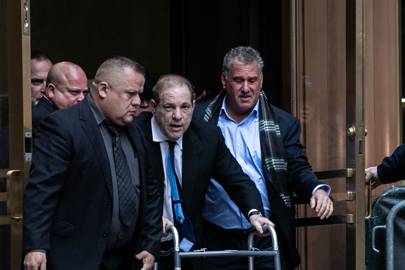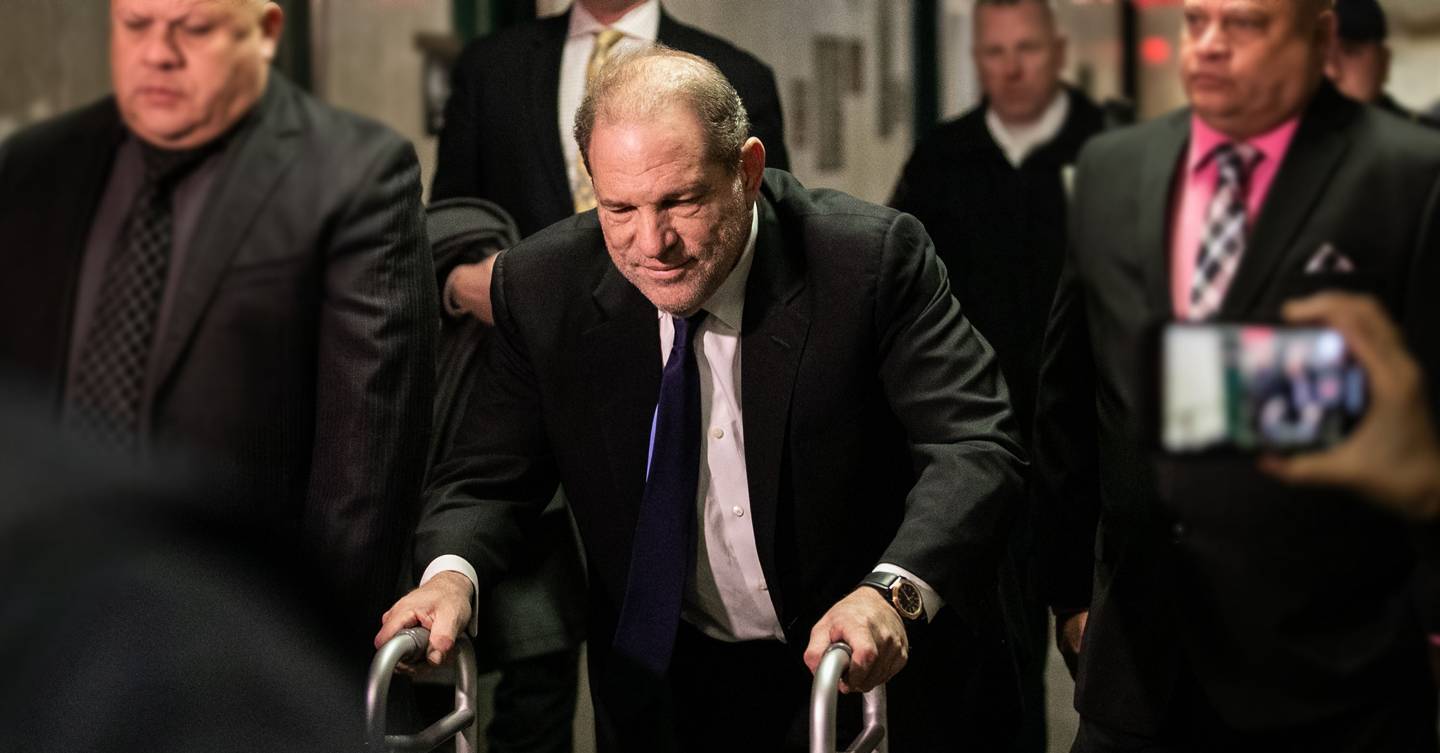Considering Harvey Weinstein’s name has practically become synonymous with #MeToo after all the sexual misconduct allegations against him, expectations were high when it came to justice being served. Surely the man whose behaviour has forced dozens of women to speak out about sexual violence and harassment would be forced to pay?
Except, it turns out that he hasn’t. Weinstein has reached a settlement with dozens of women who are fighting him in civil courts, and according to this existing deal, which is set to be finalised shortly, the film mogul’s insurance company is going to pay £19 million to the 30-odd actresses and ex-employees who have brought charges against him. Weinstein will not be out of pocket at all, and most upsettingly of all for the victims, the settlement means Weinstein will not have to admit to any wrongdoing at all.
It is shocking, particularly in light of the fact that Weinstein’s appalling behaviour sparked the #MeToo movement. Before #MeToo, it was incredibly rare for a celebrity to speak out about an experience of sexual harassment or assault – let alone against a figure of authority within the industry. Doing so wasn’t just frowned upon; it potentially had long lasting repercussions that could spell the end of their career.
But ever since the revelations against Weinstein began to trickle out into the public eye, it felt like things were finally changing. The taboo around sexual assault began to lift, to the point where dozens of A-list stars have spoken out about their experiences of sexual violence, and movements like #MeToo and Time’s Up made it onto the red carpet. And yet, in spite of all this apparent societal change, it seems that nothing has really changed at all.
This settlement will not directly affect Weinstein at all. ‘I think the settlement is a joke and it signifies an absolutely broken system,’ said Zoe Brock, an actor and model involved in the case, summing up many of the reactions to the deal. ‘I’m devastated by it. I’m appalled by it.’ Actress Emma Watson, a supporter of Time’s Up, the anti-sexual harassment campaign, tweeted: ‘If this is the best the survivors could get, the system is broken’ and Emily Ratajowski wrote ‘F Harvey’ on her arm, tweeting: ‘Weinstein, accused of offenses ranging from sexual harassment to rape, won’t have to admit wrongdoing or pay his own money. #nojusticenopeace.’
Under this settlement, 18 of the alleged victims will split around £4.6 million after the majority will go straight to lawyers, receiving around £400,000 each. A separate pot of money, £13.8 million, will be set aside for those who were part of a class-action case, with a court-appointed monitor allocating payments based on the severity of the harm alleged. The deal will effectively bring an end to the civil lawsuits against Weinstein, but a criminal trial against him will begin in January 2020 in New York.

Getty Images
Unlike the civil lawsuit, where dozens of women have brought claims against him, Weinstein will only face two charges of sexual assault in the criminal court. This is due to the statute of limitations, meaning that too much time has passed since the alleged crimes for the victims to bring them to the criminal justice system. It’s why for so many women, their only chance at getting justice was to take it to the civil system, where they hoped that a settlement would see Weinstein have to admit wrongdoing, or at the very least, have to pay damages out of his own pocket.
The victims are now pinning their hopes on the upcoming criminal trial, but after hearing of the settlement in this civil trial, there is a real concern that yet again, nothing will change. As Brock told the BBC: ‘I live best in a worst case scenario at this point because the worst case scenario is already happening. So I have to imagine he’ll get off and make a comeback because that’s where I feel safest at this point.’
This is tragic for the women who say they have been abused and harassed at his hands. It’s also a travesty for the 1 in 3 women across the world who have survived or will go on to survive physical or sexual violence. It suggests that their worst fears of not being believed, or being silenced by the justice system, could come true – meaning that the already-low figures of women reporting sexual violence could stay where they are, or possibly even drop further. If the worst that can happen to a man accused of sexual misconduct by around 80 women is that his insurance company has to make a payout, then is it really worth the media scrutiny and emotional difficulty of reporting a rape?
It’s an awful question that millions of women around the world will doubtless be asking themselves now, and it’s one that will continue to be asked if the justice system does not change. For years, campaigners have been calling for a change to a system that sees women forced to sign NDAs that silence them and accept meagre settlements for sexual misconduct. To some, £400,000 may not sound like a small amount, but considering many of these women have had their entire careers and lives ruined after their alleged assaults and are now in financial damage, it is important and fair that the sum they’re paid is indicative of the crime in question.
Campaigners have rightly labelled the settlement in this case ‘a laughable pittance’ – and it’s one the women accepted only because they have little other choice. In a system that silences their voices, they’re backed into corners, while perpetrators effectively get away with their crimes. It shows the sad truth: that for all the talk of change and the powerful campaigning around #MeToo, we haven’t really come as far as we think.
